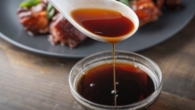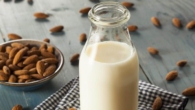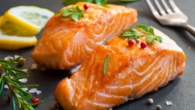
Experts have named products to be included in the menu for stomach ulcers
1
To people , suffering from stomach ulcers, in addition to medication, it is important to avoid certain foods, and some, on the contrary, must be included in your menu.
Cauliflower.One of the recommended products for inclusion in the menu for stomach ulcers. Contains sulforaphane – a substance that has the property of successfully fighting its main provocateurs, H. pylori bacteria.
Cabbage. The compound s-methylmethionine (vitamin U) contained in ordinary cabbage, contributes to the therapy of stomach ulcers, alkalizing the body and balancing the pH level. In addition, the product is rich in the amino acid glutamine, useful in the treatment of ulcers: its presence promotes the healing of open pores, strengthens the mucous membrane.
Radish.Experts call white radish a useful product for eliminating inflammation of the mucous membrane of the stomach, problems with its work.
Apples. Experts called eating an apple every day a natural way to reduce the likelihood of stomach ulcers. This product contains flavonoids that inhibit the activity of H. pylori bacteria.
Carrot.Be sure to include carrots in the menu to strengthen the mucous membrane of the stomach. Scientists state that the presence of vitamin A in carrots helps prevent ulcers, inflammation or upset stomach.
Broccoli. Research shows that sulforaphane contained in it is able to destroy bacteria that cause ulcer lesions.
Garlic. A small clove of garlic is able to restrain the reproduction of H. pylori bacteria, which cause stomach ulcers. The product also contains certain antimicrobial elements that help in its treatment.
Licorice. Can effectively fight stomach ulcers and gastritis – it has anti-inflammatory properties that reduce inflammation in this organ. .
Natural yogurt. Experts called it one of the most useful products to include in the ulcer menu. Its components – probiotics, lactobacilli, acidophilus – help in the treatment of the disease.
Olive oil. Research data show that its phenols act as antibacterial agents, preventing the further spread of H. pylori and at the same time damage to the mucous membrane of the stomach.









Leave a Reply